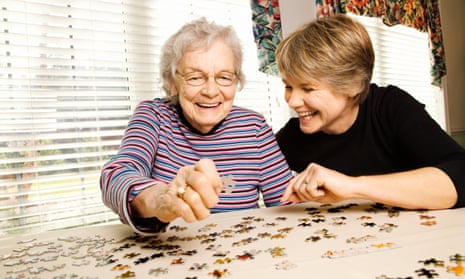Westminster rarely serves up good news, so let us celebrate when it does. Millions of employees are about to get a new statutory right: they can take up to a week’s extra leave to care for elderly, sick or disabled relatives. The law on carers’ leave was introduced by the Liberal Democrat MP Wendy Chamberlain and cleared its final parliamentary hurdle last week. All that awaits is royal assent. The Lib Dems describe the new act as a “first step”; what they want next is paid leave for carers. In this week’s announcement on the NHS, Sir Keir Starmer made the same commitment for Labour.
There is much fertile political ground here, for any party that wants to claim it. There are around 5 million unpaid carers in the UK, looking after parents or family members. Without them, a lot of unwell and elderly people would have no lifeline, and local authorities and the NHS would come under huge strain. Many caregivers would never dream of taking money for their labours, but that doesn’t mean their work is valueless. Far from it: researchers at the University of Sheffield put the total value of unpaid care in England and Wales at £162bn a year, or the equivalent of the entire NHS in England.
Studies of unpaid carers show they do work that is exhausting, volatile and often upsetting. After all, they are watching people they love in pain. Yet, until fairly recently, they were meant to leave all those responsibilities outside the workplace and fit them in around whatever gaps they had in their diaries.
In this, there are clear parallels with how workers in social care are treated. Again: they perform vital roles looking after people who depend on them for the basics. It is an overwhelmingly female workforce, and in London largely ethnic minority. And, according to research from the Health Foundation, around one in four care home workers live on the brink of poverty. One in 10 did not always know where their next meal was coming from.
That was based on research carried out just before the pandemic, a time when the public gathered on their doorsteps to clap for carers and the government promised a “protective ring” for care homes. Yet pay in care homes remains very low, and local authority funding for those needing care is abysmal.
One lesson rammed home in the pandemic was how our working routines were less important than the caring responsibilities we had. The lesson has either been forgotten or ignored. There remains a vast tension between the importance of this work, both paid and unpaid, and how little recognition it gets. Carer’s allowance is miserly and attendance allowance near rock bottom. Westminster’s focus on productivity is actively damaging here: it means less care squeezed into less time in days that are crammed with more visits and patients.
Over the past year, politicians have focused on how financially stretched their voters are. Yet they have not done enough work on how stretched Britons are in carrying out their everyday responsibilities. That, surely, is where Westminster should train its attention: not on growth but on ensuring sufficient support for the everyday economy of care, housing, health and schools. The right to carers’ leave is a good start in that direction, but it also points up how much further there is to go.
